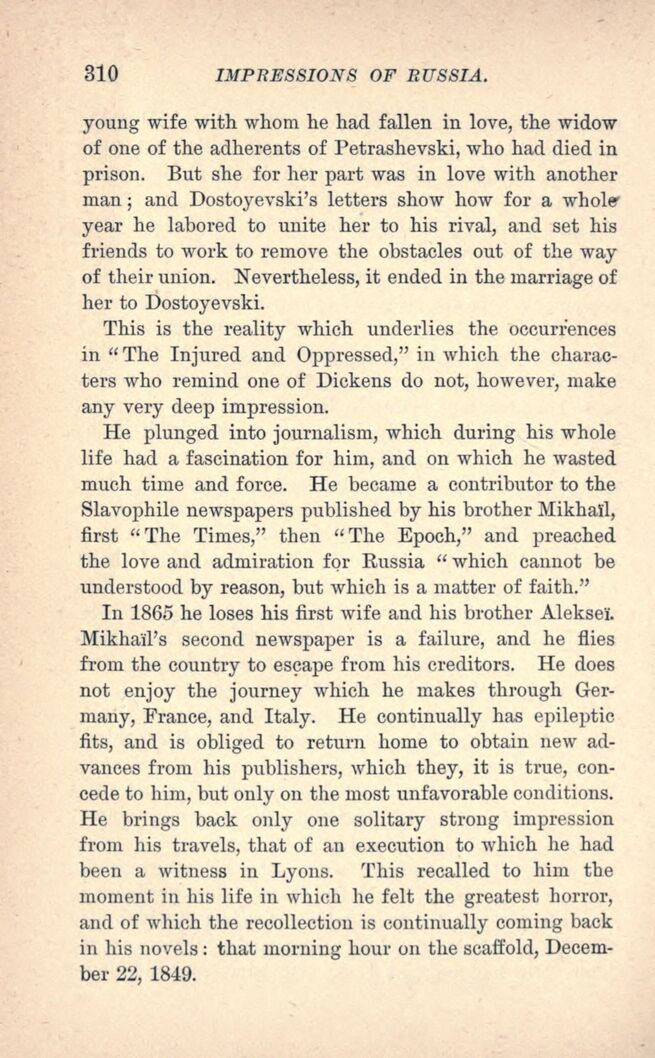
Full resolution (JPEG) - On this page / på denna sida - Impressions of Russian Literature - VI

<< prev. page << föreg. sida << >> nästa sida >> next page >>
Below is the raw OCR text
from the above scanned image.
Do you see an error? Proofread the page now!
Här nedan syns maskintolkade texten från faksimilbilden ovan.
Ser du något fel? Korrekturläs sidan nu!
This page has been proofread at least once.
(diff)
(history)
Denna sida har korrekturlästs minst en gång.
(skillnad)
(historik)
young wife with whom he had fallen in love, the widow
of one of the adherents of Petrashevski, who had died in
prison. But she for her part was in love with another
man; and Dostoyevski’s letters show how for a whole
year he labored to unite her to his rival, and set his
friends to work to remove the obstacles out of the way
of their union. Nevertheless, it ended in the marriage of
her to Dostoyevski.
This is the reality which underlies the occurrences
in “The Injured and Oppressed,” in which the characters
who remind one of Dickens do not, however, make
any very deep impression.
He plunged into journalism, which during his whole
life had a fascination for him, and on which he wasted
much time and force. He became a contributor to the
Slavophile newspapers published by his brother Mikhaïl,
first “The Times,” then “The Epoch,” and preached
the love and admiration for Russia “which cannot be
understood by reason, but which is a matter of faith.”
In 1865 he loses his first wife and his brother Alekseï.
Mikhaïl’s second newspaper is a failure, and he flies
from the country to escape from his creditors. He does
not enjoy the journey which he makes through
Germany, Prance, and Italy. He continually has epileptic
fits, and is obliged to return home to obtain new
advances from his publishers, which they, it is true,
concede to him, but only on the most unfavorable conditions.
He brings back only one solitary strong impression
from his travels, that of an execution to which he had
been a witness in Lyons. This recalled to him the
moment in his life in which he felt the greatest horror,
and of which the recollection is continually coming back
in his novels: that morning hour on the scaffold,
December 22, 1849.
<< prev. page << föreg. sida << >> nästa sida >> next page >>